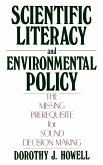Challenging views prevalent among Western and Polish scholars, this book explains Poland's surprising success in developing effective environmental and occupational regulatory systems while achieving remarkable socioeconomic growth, despite the toxic legacy of the Communist era. It offers rich insights into the questions of how one can achieve both economic growth and improved environmental and safety protection, and of the extent to which regulatory systems can be transferred across national and cultural boundaries. The authors develop a theoretical framework for assessing regulatory success, then use it to analyze Poland's recent experience. Grounded in five case studies of recently privatized firms, the analysis also presents a new survey of privately owned firms, extensive policy and data analysis, and interviews with key policy leaders, entrepreneurs, and intellectuals. The book points to case-specific decision making and information richness as key dimensions of an effective regulatory system and considers in depth the extent to which information richness is culturally dependent, and hence its portability as a policy tool. Addressing regulatory issues that are specific to both the United States and the international development community, the book makes a significant contribution to advancing the theoretical and conceptual frameworks used to explain the success, or lack of success, of regulatory systems.
Hinweis: Dieser Artikel kann nur an eine deutsche Lieferadresse ausgeliefert werden.
Hinweis: Dieser Artikel kann nur an eine deutsche Lieferadresse ausgeliefert werden.








